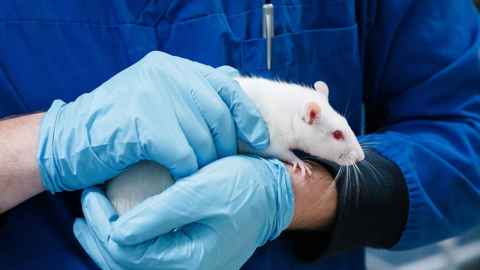Openness in the use of animals for research
The carefully regulated use of animals in research and teaching is essential for discoveries to improve the health and well-being of humans and animals, protect the environment and make a vital contribution to understanding biological processes.

Animals in research and teaching
Animals are used in research and teaching only when it can be justified on scientific, ethical, and legal grounds and when no satisfactory or reasonable alternative is available. The University is committed to the principles of Replacement, Reduction and Refinement (the 3Rs) in animal-based research and teaching.
All animal-related research and teaching is carried out in strict compliance with the relevant legislation. Research using animals is only conducted after consideration by the University Animal Ethics Committee (AEC). The committee scrutinises proposals for their scientific and ethical justification.
The AEC is made up of animal care staff, researchers, and external members independent of the University, including a lay member, veterinarian, and person with expertise in animal welfare. Facilities, researchers, and animal care staff are committed to strict animal welfare practices and facility and veterinary staff are on call 24/7.
Openness Agreement
The University is a signatory of the Openness Agreement on Animal Research and Teaching in New Zealand, developed by the Australian and New Zealand Council for the Care of Animals in Research and Teaching (ANZCCART).
The Openness Agreement commits signatories to acknowledge, both internally and externally, that they and their members carry out, fund or support the use of animals in research and teaching. It also seeks to ensure that signatories are open about the use of these animals.
The University supports the five commitments of the Openness Agreement:
• Be clear about why and how animals are used in research and teaching
• Enhance communications with the media and the public about the use of animals in research and teaching
• Enhance communications with tangata whenua about the use of animals in research and teaching
• Be proactive in providing opportunities for the public to find out about research and teaching using animals
• Report annually on progress and share experiences